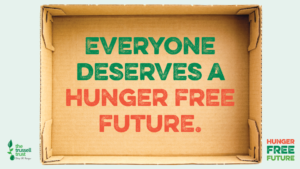News
Foodbank use in Hampshire, like in many other parts of the UK, has seen a significant rise
9th October 2024
-
Share this:
- Share on facebook
- Share on twitter
- Share on linkedin
Foodbank use in Hampshire, like in many other parts of the UK, has seen a significant rise due to economic pressures, inflation, and the cost of living crisis. Increasing numbers of families and individuals are relying on foodbanks to access essential groceries and meals.
Donations from the community, including contributions from local businesses and schools, play a vital role in meeting this demand and supporting vulnerable residents.

Here are some interesting facts about UK food banks:
- Rapid Growth in Numbers
The number of food banks has grown significantly over the past decade, particularly after the 2008 financial crisis. The Trussell Trust runs over 1,300 food banks, but the total number across the country, including over 900 independent food banks, is likely much higher.
- Rising Demand
From 2020 to 2021 the Trussell Trust distributed over 3 million emergency food parcels, with about 1.1 million going to children. The pandemic and rising living costs have dramatically increased demand for food bank services.
Fuel poverty, rising living costs, and changes to the welfare system have also driven the increased reliance on food banks.
- Not Just Food
Many food banks now offer more than just food. They provide toiletries, baby supplies, and household items, and often help with things like debt advice, job search support, and mental health services.
- Run by Volunteers
Most food banks are run by volunteers, with an estimated over 40,000 individuals giving their time to support food banks across the UK. These volunteers are vital to keeping the services running and ensuring that those in need receive essential supplies.
- Holiday Impact
The demand for food bank services often spikes during school holidays. Families who rely on free school meals during term time find themselves struggling when these provisions are not available, increasing the burden on food banks.
- Food Waste Reduction:
Many food banks collaborate with retailers to reduce food waste by distributing surplus food from supermarkets and food manufacturers.
These facts highlight the crucial role food banks play in supporting vulnerable individuals and families in the UK, while also addressing issues like poverty, hunger, and food waste.
